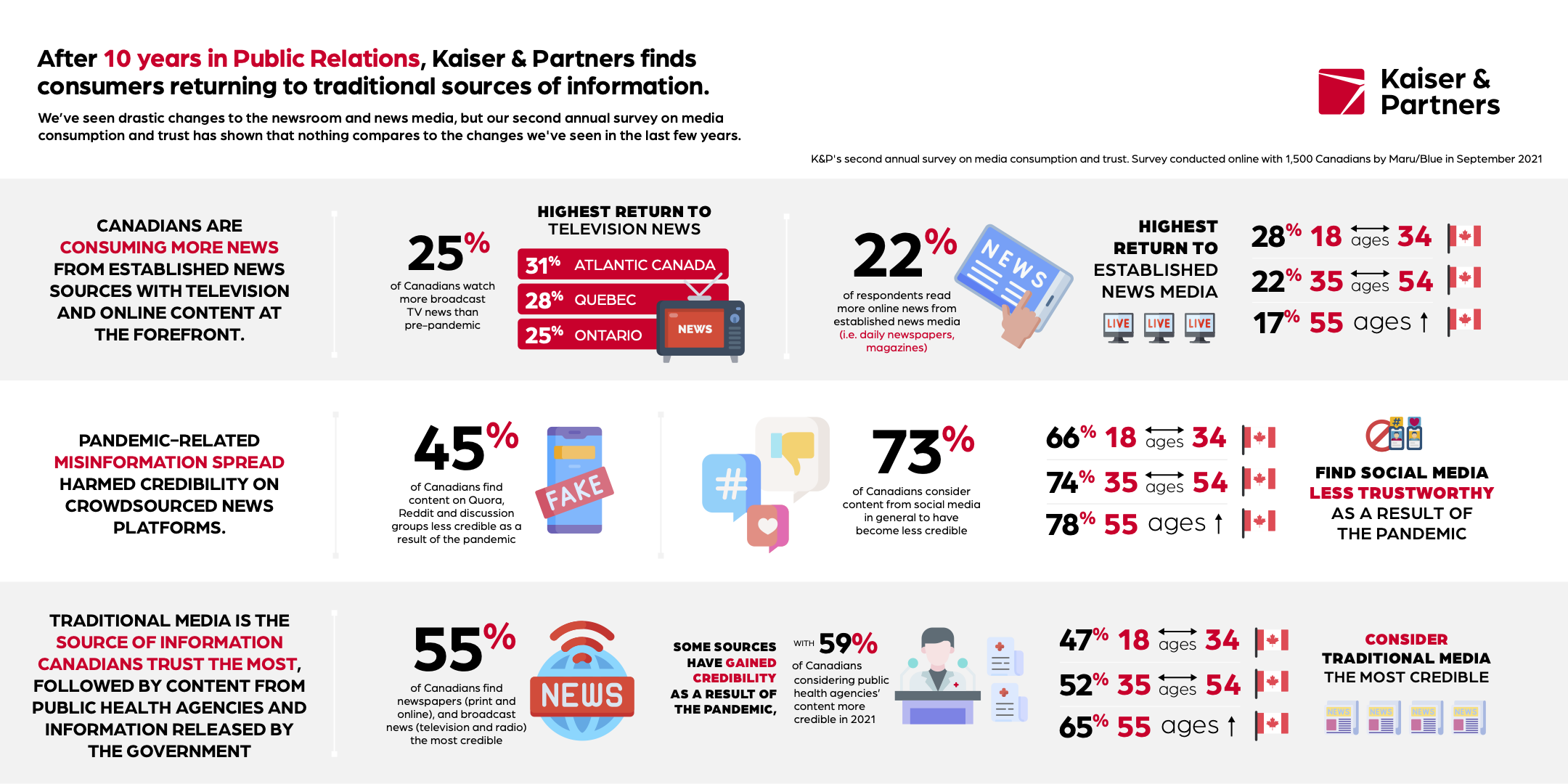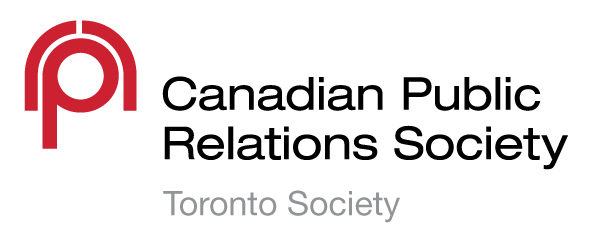By Janine Allen and Kate Morris
All good relationships are built on trust.
In the PR business, we value the currency of trust we hold inside the industry and on behalf of our clients. Our core job is to build and protect reputation. We assess data and establish credible information that profiles our clients as thought leaders. We connect with the most important stories of the day to provide expert insight and commentary.
There is however one area of our day-to-day operations that is essential and so thoroughly trusted that we sometimes overlook its value: media relations. To us, traditional media is the gold standard of trustworthiness. In our Kaiser & Partners staff meetings and on our Slack channels, staff constantly exchange the news of the day; we follow journalists the way other people follow their friends on social. We have the utmost respect for the tireless work of Canadian journalists.
In 2020, when the US elections were wrapping up and the pandemic was becoming a fixture in our lives, we decided to survey Canadians to understand how their trust and consumption of media – both traditional and social – might be shifting. Anecdotally, we were aware that current events had changed the way people were consuming media and getting information, but we wondered if there were also changes in their levels of trust towards it? With so much important news coming out of regional public health authorities and governments, we wanted to understand where people were getting pandemic-related information and whether they found it credible.
The 2020 survey supported our assumptions. When faced with a generational blow like the pandemic, Canadians increasingly turned to broadcast, online newspapers and magazines for the facts and information that matters most.
In our second annual survey this October, we found that while respondents indicated that they had returned to more traditional news sources, they remain skeptical of the credibility of those same outlets.
Of the 1509 respondents, 25 per cent reported consuming more broadcast television news than before the pandemic, while 22 per cent reported that they are reading more online news from established daily newspapers and magazines than they were in 2019. Surprisingly, Canadians between 18 to 34 reported the highest increases (28 per cent) in consumption of established media.
While year-over-year, trust in the credibility of all news sources declined, there were positive notes. Established news media (newspapers, online newspapers, broadcast news and radio) was still regarded as the most credible source of information (55 per cent) by respondents, followed by public health agencies (51 per cent) and government news (42 per cent). Public health agencies gained some reputation points with Canadians as 59 per cent consider content from these organizations to be more credible because of the pandemic.
It comes as no surprise that social media platforms have a serious reputation problem. Our study shows data consistent with what has been reported on disinformation on social platforms, and it also shows that Canadians are becoming wise to it. Social media was reported as the least credible source of information by 73 per cent of respondents, while crowd-sourced platforms such as Reddit and Quora were the second least credible, at 45 per cent.
Broken down by demographics, 78 per cent of Canadians aged 55 or older found social media less trustworthy than they had before the pandemic. Seventy-four per cent of those between 35 and 54 reported social media as less trustworthy as a result of the pandemic, while 66 per cent of those aged 18 to 34 reported a similar decrease in trust. The info-demic has affected public perceptions of media of all kinds, and that has not gone unnoticed by Canadians using social media.
Reputation is the currency of public relations. As advisors to our clients, we must hold ourselves to the highest standard of truth and information, facilitating our clients’ ability to share fact-based opinions and data-backed news with the public through trusted media sources. As we advise clients on communications strategies for the post-pandemic world, where new information and policy will likely continue to evolve more rapidly than before, we can now argue for the connection between credibility, reputation and trust in our tactics. Our survey shows that media relations is still the gold-standard for trust and credibility. Our profession, when held to the highest ethical standard, has a responsibility to facilitate the work of journalists by preserving that trust.

-30-
Janine Allen, president and partner at Kaiser & Partners, is a seasoned senior communications advisor for clients across all the agency’s industry sectors. As president, she also oversees and has responsibility for the overall operations and strategic direction for the agency.
Kate Morris is a recent graduate of the Centennial College corporate communications and public relations program and is the fall intern at Kaiser & Partners. She holds degrees from McGill, the University of Glasgow and Oxford University and has extensive experience working as a researcher, writer and editor.

